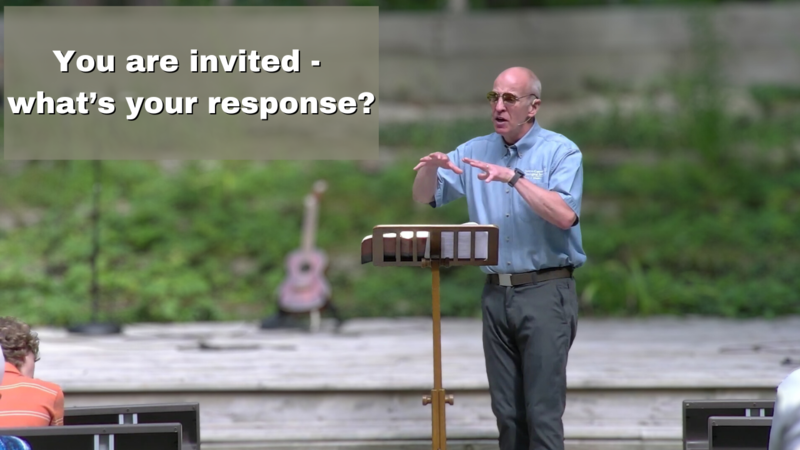
In the Parable of the Wedding Banquet from Matthew 22, we're invited to reflect on the nature of God's kingdom and our response to His invitation. The story presents a king throwing a grand feast for his son, symbolizing God's offer of salvation and relationship. We're challenged to consider how we respond to this divine invitation - do we accept eagerly, or do we make excuses and reject it? The parable reminds us that there are consequences for refusing God's grace, but also emphasizes the inclusivity of His invitation, extended to 'both good and bad.' Perhaps most intriguingly, we're prompted to consider what it means to be properly dressed for the banquet. This isn't about literal clothing, but about our spiritual preparedness and willingness to embrace God's ways rather than our own. As we reflect on this, we're encouraged to examine our hearts and ask: Are we truly ready for God's kingdom, or are we trying to enter on our own terms?
How does the concept of God's invitation to His kingdom challenge our modern notions of autonomy and 'doing things our own way'?
In what ways might we be 'showing up without wedding clothes' in our spiritual lives, and how can we better prepare ourselves for God's banquet?
How does the parable's depiction of judgment for refusing the invitation or not being properly prepared conflict with or align with your understanding of God's love and grace?
What are some practical ways we can extend God's invitation to others in our daily lives, and how might this relate to the role of the servants in the parable?
How does the image of God's kingdom as a joyful banquet impact your perspective on faith and eternal life?
In what areas of your life might you be trying to set your own terms with God rather than fully embracing His invitation and expectations?
How does the story of the ex-wife and current wife serving together at the funeral dinner illustrate the transformative power of God's kingdom?
What does it mean to truly accept God's invitation beyond just 'showing up', and how might this change how we approach our faith?
How can we balance the joy of being invited to God's banquet with the sobering reality of judgment for those who reject the invitation?
In what ways does this parable challenge our cultural tendency to customize or personalize our spiritual beliefs and practices?

.png)